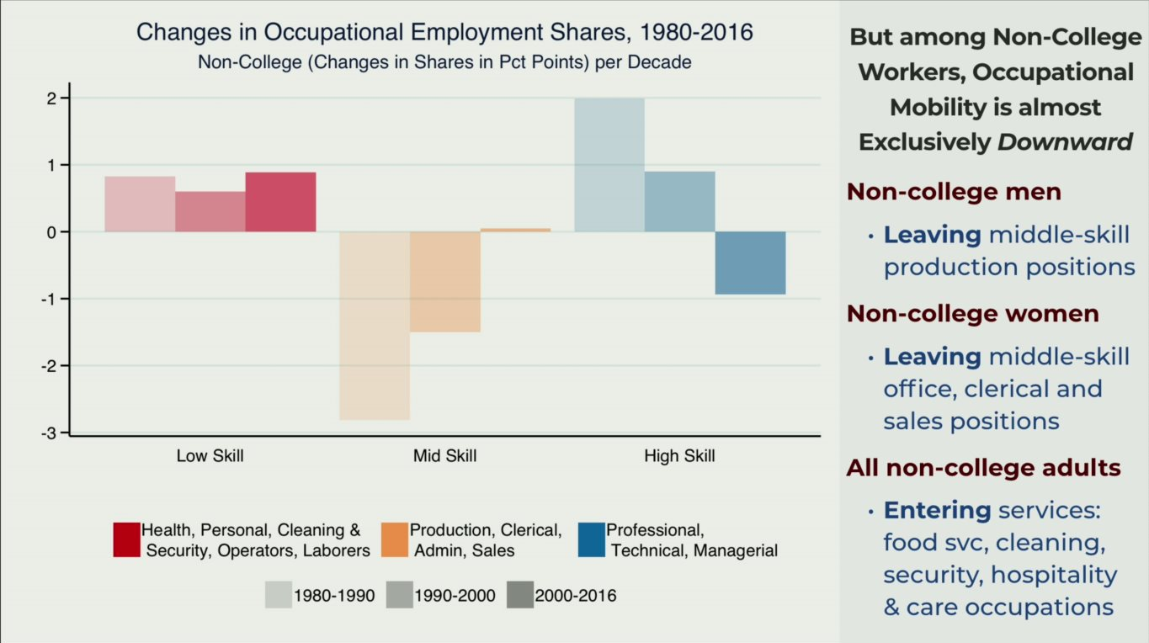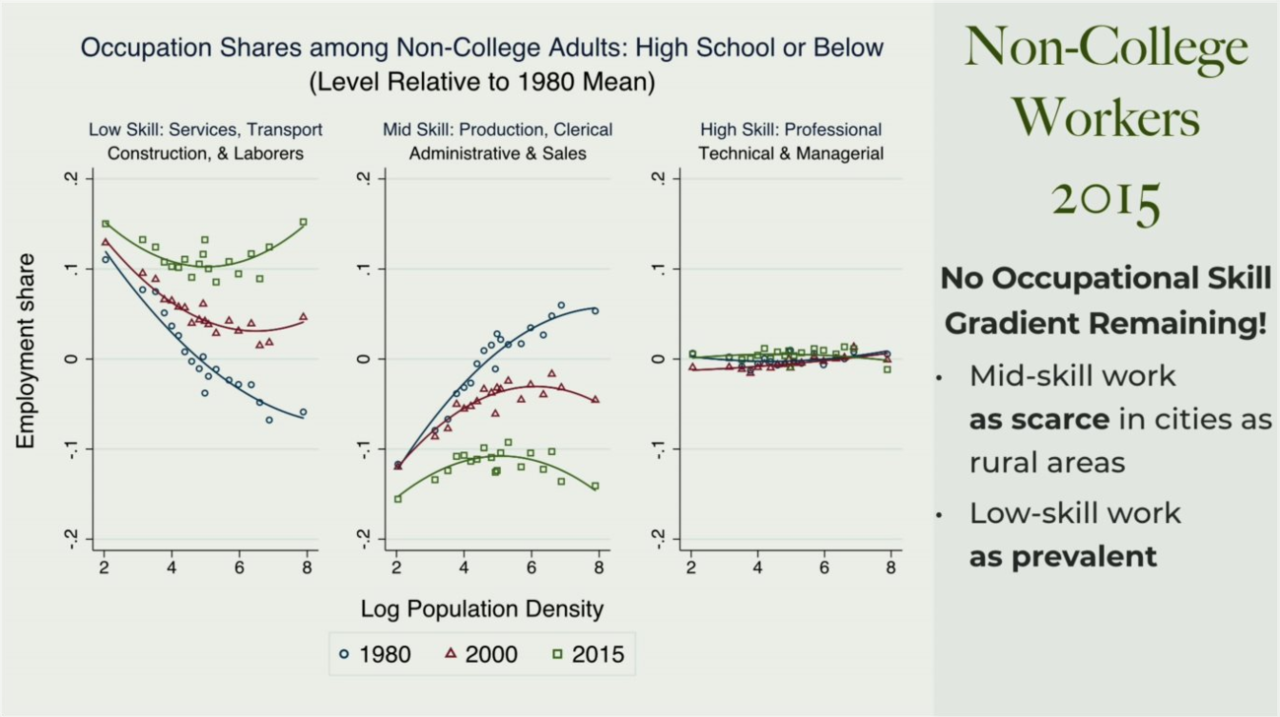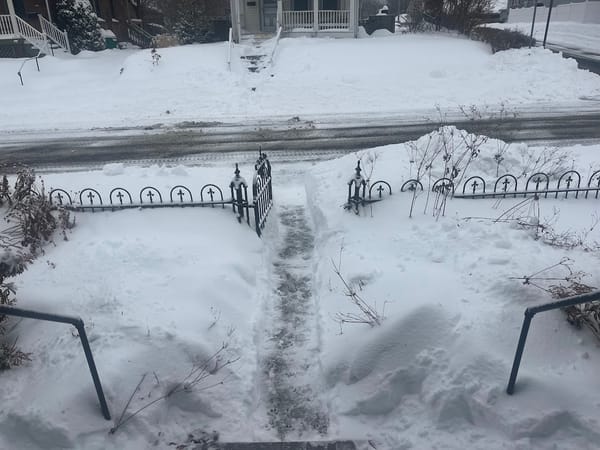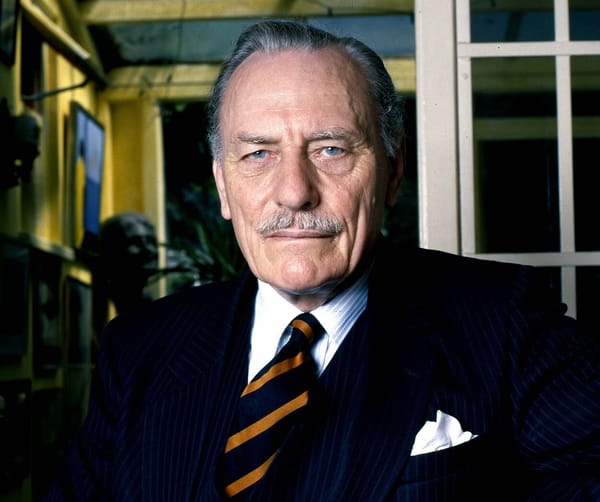Krugman Doesn’t Get the Politics of White Rural Rage
Because he's a left-wing economist, not a disaffected economist.
Paul Krugman wrote a column this week in the NY Times, The Mystery of White Rural Rage, where he goes blundering into the thickets of peripheral America, not looking for clues, really, but expressing bewilderment as to why rural white people are so angry.
His motivation is ostensibly a book review, White Rural Rage: The Threat to American Democracy, a book by Tom Schaller and Paul Waldman, which attributes much of rural rage to technology eliminating jobs in the hinderlands:
This process and its effects are laid out in devastating, terrifying and baffling detail in “White Rural Rage: The Threat to American Democracy,” a new book by Tom Schaller and Paul Waldman. I say “devastating” because the hardship of rural Americans is real, “terrifying” because the political backlash to this hardship poses a clear and present danger to our democracy, and “baffling” because at some level I still don’t get the politics.
His inability to 'get the politics' rings through much of his commentary, not just in this piece. Before I dig into that blindness, more of the book’s thesis:
Technology is the main driver of rural decline, Schaller and Waldman argue. Indeed, American farms produce more than five times as much as they did 75 years ago, but the agricultural work force declined by about two-thirds over the same period, thanks to machinery, improved seeds, fertilizers and pesticides. Coal production has been falling recently, but thanks partly to technologies like mountaintop removal, coal mining as a way of life largely disappeared long ago, with the number of miners falling 80 percent even as production roughly doubled.
Productivity is way up, but the number of jobs is way down, and many of the jobs left are deskilled, so they earn lower wages.
And here is where Krugman goes off the tracks:
Technology, then, has made America as a whole richer, but it has reduced economic opportunities in rural areas. So why don’t rural workers go where the jobs are?
Some have. But some cities have become unaffordable, in part because of restrictive zoning — one thing blue states get wrong — while many workers are also reluctant to leave their families and communities.
This misses some important background material that Krugman should know. The economist David Autor studied this very question, and determined the reason those dumped from former manufacturing, coal, and agriculture haven’t migrated to cities ‘where the jobs are’. It’s not zoning: it’s lack of mid-skilled jobs.
In his Work of the Past, Work of the Future paper, Autor showed his core research finding:
Economic trends have turned modern cities into as much of a mid-skill work desert as rural areas.
Why would the rural displaced, who formerly had mid-skilled work, like manufacturing jobs, migrate to the city at great expense and disruption, when they aren’t highly trained professionals? The mid-skill jobs of the past are gone, as I wrote in 2019 (prepandemic).
The skinny is that work in the US is increasingly urban, as fewer people are migrating in the country aside from young college-educated people who move to urban areas to become educated, and then don't leave. However, mid-skill work -- which has been historically performed by non-college-educated workers -- has drastically declined, and those workers have been transitioning into low-skilled -- and lower-paid -- work in both urban and non-urban settings. This is the result of automation, computerization, and the impact of manufacturing and clerical work moving offshore.
Here’s Autor’s charts showing the crash of mid-skill work, everywhere.


Krugman doesn't really discuss this, at all. He wants to attribute rural rage as a consequence of a ‘loss of dignity’:
This feeling of a loss of dignity may be worsened because some rural Americans have long seen themselves as more industrious, more patriotic and maybe even morally superior to the denizens of big cities — an attitude still expressed in cultural artifacts like Jason Aldean’s [hit song](https://www.nytimes.com/2023/08/02/arts/music/jason-aldean-small-town-newjeans-billboard.html) “Try That in a Small Town.”
In the crudest sense, rural and small-town America is supposed to be filled with hard-working people who adhere to traditional values, not like those degenerate urbanites on welfare, but the economic and social reality doesn’t match this self-image.
I think it’s anger at being forgotten by the institutions that frame our world: the businesses they worked for that have closed the local plant or mine.
Quite a few rural states also have high rates of homicide, suicide and births to single mothers — again, not because rural Americans are bad people, but because social disorder is, as the sociologist William Julius Wilson argued long ago about urban problems, what happens when work disappears.
Krugman doesn’t address the hard reality behind the emptying out of the periphery for mid-skilled work: large corporations can make massive decisions -- like closing a plant in a small city -- and dislodge thousands of workers, without any checks. Those people are whipsawed by market capitalism, unfettered by our neoliberal government policies. So they are carpet bombed because GM -- or whoever -- wants to cut losses, and no institution will step forward to stop it.
Draw attention to some of these realities and you’ll be accused of being a snooty urban elitist. I’m sure responses to this column will be … interesting.
Well, you are a coastal elite, a highly educated economist — a Nobel laureate, for crying out loud — and you are not challenging the central tenets of market capitalism.
The result — which at some level I still find hard to understand — is that many white rural voters support politicians who tell them lies they want to hear.
But some politicians -- from the hard right or hard left-- are telling them the truth: the game is rigged; it doesn't matter if you and your family worked hard for years — maybe generations. It doesn’t matter. The corporate overlords can do what they want, and the politicians in the state capital or DC can't or won't do anything about it.
It helps explain why the MAGA narrative casts relatively safe cities like New York as crime-ridden hellscapes while rural America is the victim not of technology but of illegal immigrants, wokeness and the deep state.
No, they are victims of market capitalism, which benefits the coastal elite; so they wish that elite to suffer, too, even if it’s imaginary.
At this point you’re probably expecting a solution to this ugly political situation. Schaller and Waldman do offer some suggestions. But the truth is that while white rural rage is arguably the single greatest threat facing American democracy, I have no good ideas about how to fight it.
Simple. Create a liberal socialism that will restrain the market forces that tear through non-urban regions like a string of tornadoes, ripping the social fabric to shreds. The rock-bottom message to these disaffected is straightforward: yes, you’ve been treated like expendables for the past forty years. Yes, the institutions that should have moderated these transitions did not. And even well-meaning moderates like Krugman, Schaller, and Waldman don’t know what to do.
It will take a politics of the disaffected — those who have lost faith in the elite, our institutions, and the market economy — to heal the breach with the white working-class of peripheral America, a politics that rejects unfettered market capitalism, which may lead to a break between the left and the wealthy. A politics of the disaffected that will work to create a new social contract based on what Matthew McManus and others call liberal socialism. Exploring that in depth is the work of another day.



